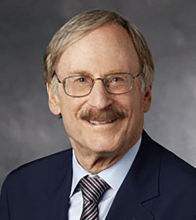You are here
It is the inflation
Jun 22,2022 - Last updated at Jun 22,2022
STANFORD — Thirty years ago, Democratic political strategist James Carville focused Bill Clinton’s presidential campaign with the mantra, “It’s the economy, stupid”. America had just experienced a relatively brief, mild recession, owing partly to sharply rising oil prices following Saddam Hussein’s invasion of Kuwait. Between the slow recovery and Ross Perot’s independent candidacy (which peeled votes away from then-president George H.W. Bush), the stage was set for a Clinton victory.
Today, America’s job market remains resilient, with healthy job creation, low unemployment, and almost two job openings for every unemployed person. But dangerously high inflation has left Americans deeply dissatisfied with the economy. At 8.6 per cent as of May, the annual consumer-price-index inflation rate is quadruple the norm of recent decades, and has outpaced wage growth, leaving most families with falling real incomes. Even core inflation, which excludes volatile food and energy prices, is running at 6 per cent, higher than in other major economies. No one under 60 has experienced anything like this in their adult life.
Worse, the odds of a recession are growing. Housing starts and retail sales are stalling, and stock and bond markets, imperfect predictors, to be sure, are signaling problems ahead. There is little monetary- or fiscal-policy ammunition left to deal with a recession, and the fiscal profligacy of the past three administrations has left the country poorly equipped to address exploding Social Security and Medicare spending costs, not to mention the now-apparent need for more defense spending.
With the US Federal Reserve (Fed) now raising its target interest rate, inflation may ease heading into next year. But a lag in the effects of higher rates, combined with rising inflation expectations, according to consumer surveys and the bond market, suggests that it will be some time to reach the Fed’s 2 per cent target.
In the meantime, polls indicate that Americans will take out their frustration on President Joe Biden and the Democratic Party, starting with the midterm elections this November, when the Republicans will likely take control of the House of Representatives and possibly also the Senate. Once again, “it’s the economy, stupid”.
Biden has repeatedly claimed that today’s surging inflation is transitory, and that nobody forecasted high, persistent inflation. Obviously, he is incorrect, and perhaps ill-informed by his advisers. Lawrence H. Summers, a top economic adviser in the Obama administration, warned his party in early 2021 that its $1.9 trillion of additional spending would likely fuel inflation. And shortly thereafter, I warned of higher inflation and the broader risks to growth. Yet the administration persists in pushing an agenda of big government spending and corporate and personal tax hikes.
Instead of correcting course, the White House has tried to shift the blame for elevated inflation and its own misreading of the economy. Citing factors such as Russia’s war in Ukraine, supply-chain disruptions, and “greedy” corporations, Biden and his spokespeople argue that since high inflation is a global phenomenon, it cannot be due to their policies. Yet whatever the contributions from these other causes, they do not compare to the extraordinary excess demand generated by ultra-loose monetary and fiscal policies in the United States. The spending package in early 2021 was far larger than the gap between actual and potential GDP. Biden’s biggest problem is not poor messaging or public misperception; it is his own policies.
Biden deserves credit, however, for respecting the Fed’s independence as it pursues monetary tightening. That sets him apart from the predecessor to whom he is increasingly compared: Jimmy Carter. In the midst of even worse inflation, Carter demanded that the Fed lower interest rates, which is about as economically illiterate as you can get.
Biden’s success or failure has always depended on three factors. The first is how he handles all the unpredictable issues that arise during any presidency. Second, he needs to show not only that he can learn from the mistakes of Barack Obama’s administration, but also that he is open to continuing, and amending as necessary, some of what worked in the Trump administration, such as Title 42 and the Remain in Mexico illegal immigration policy. Lastly, his economic advisers need his support to win the internal interagency battles and block the costly nonsense being peddled by today’s “progressives”. Unfortunately, so far he has failed on all three counts.
The question now is whether Biden will be wise enough to follow the path that Clinton took after the Democrats’ crushing defeat in the 1994 midterms, when his administration moved to the center to work constructively with the Democratic Party’s moderate majority and most Republicans.
To do so, Biden must abandon his economically ignorant policies. He has demanded even more spending to help households that are suffering from the inflation that public spending itself helped create. He has also simultaneously called for an end to fossil fuels and excoriated US oil and gas companies for not producing more, even though his own policies have reduced their incentive to invest. In the absence of greater domestic production, he has courted Venezuela and Saudi Arabia, seeking to persuade them to boost oil output.
The wiser approach would be to embrace an agenda of pro-growth, supply-side regulatory and tax reforms (like President John F. Kennedy), with spending controls and deficit reduction to complement the Fed’s efforts to curb inflation without causing a recession. Unfortunately, neither Biden nor the rest of his party have shown any inclination toward such policies. Instead, they are campaigning on social issues like abortion rights and gun control to gin up their base.
This is a risky approach, especially considering that the Democrats are already vulnerable on issues such as surging illegal immigration and crime. Citizens are fleeing cities historically run by Democrats, San Francisco has lost 6.3 per cent of its population, or obtaining guns for self-defense. While the Democrats focus on social issues, voters primarily are concerned with rising prices, which are evident daily at the gas pump and the grocery store. It is the inflation.
Michael J. Boskin, professor of Economics at Stanford University and senior fellow at the Hoover Institution, was chairman of George H.W. Bush’s Council of Economic Advisers from 1989 to 1993. Copyright: Project Syndicate, 2022.












